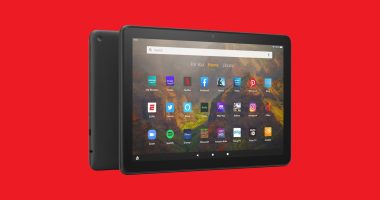The debates will air live starting at 9 pm ET, with Fox News anchor Chris Wallace moderating. Wallace has announced the six topics he plans to cover over 90 minutes: the Trump and Biden records, the Supreme Court, the coronavirus, the economy, electoral integrity, and “race and violence in our cities.” (The phrasing of that last one has understandably invited quite a lot of criticism.) Not on the docket? Climate change, an unfathomable omission given the existential stakes.
Case Western Reserve University and Cleveland Clinic will cohost the event at Cleveland’s Health Education Campus; it had originally been slated for the University of Notre Dame in South Bend, Indiana, but the school withdrew in late July, citing health precautions. Speaking of which: Things will look a little different this year with the pandemic. Cleveland Clinic served as Health Security Advisor to the Commission on Presidential Debates, which has instituted some basic guidelines to encourage social distancing. The audience will be limited, with spacing between seats. And there will be no “spin alley,” the traditional post-debate gauntlet where reporters crowd candidates.
How to Watch the 2020 PresidentialDebate
Unlike the primary debates, which are televised by a rotating slate of channels, the presidential debates are simulcast across all the major networks and cable news programs. If you have cable or satellite TV, or a live streaming TV service or a Mohu antenna, check your local listings—do those exist anymore?—and you’re good.
In the name of completism, you can find the debate on ABC, CBS, NBC, Fox, PBS, Telemundo, Univision, CNN, MSNBC, and CSPAN. Basically, it’ll be harder to avoid it than to watch it 2020 Presidential debate.
You can also stream it on those various networks’ sites and/or YouTube channels. If you’re looking for something to bookmark, CBS, CSPAN, and ABC News have YouTube streams ready to go. Most of these channels have streaming apps on the major providers: Apple TV, Roku, Amazon Fire TV, Android TV, Xbox One, and so on.
If you’re more interested in sounds than sights, you can also stick with NPR’s coverage, which you can find on your local station or through the NPR One app.
Again, at a certain point, you’d have to actively try to avoid finding the debate on your TV, streaming service, or radio. Which is good! Your cord-cutting status shouldn’t cut you out of the democratic process. And if you have to miss this one for whatever reason, don’t worry: There are presidential debates on October 15 and October 22 as well, along with a vice-presidential debate between Kamala Harris and Mike Pence on October 7. You’ll be able to find those in all the same places.
This article first appeared on wired








